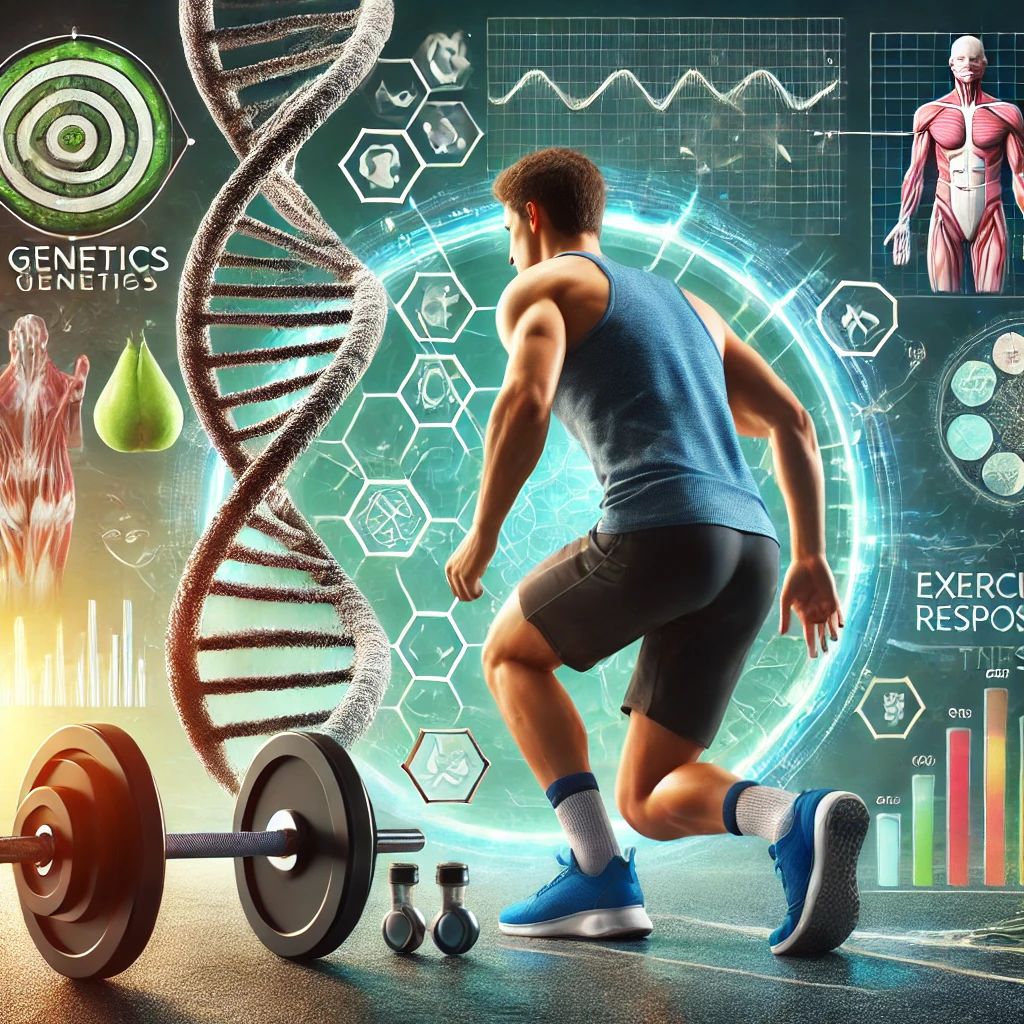
When starting a fitness journey, many people focus on exercise routines, diets, and goals without taking into account a crucial factor: genetics. Genetics plays a significant role in how our bodies respond to exercise, how we gain or lose weight, and our overall fitness potential. Understanding your genetic makeup can help you tailor a fitness program that suits your body’s unique needs, leading to more effective results and reduced frustration.
In this article, we’ll explore why it’s important to consider genetics when choosing a fitness program and how this approach can maximize your fitness results.
1. Genetics Influence How You Gain and Lose Weight
Why It Matters: Different bodies store and burn fat differently, and much of this variation is determined by genetics. Some people may find it easier to lose weight, while others may struggle despite sticking to a strict diet and workout regimen. By considering your genetic predispositions, you can develop a more realistic and personalized weight-loss or fitness plan.
How Genetics Affect Weight Management:
Fat Distribution: Genetics influence where your body stores fat, whether it’s in your abdomen, thighs, or elsewhere. This knowledge can help target specific areas through specialized exercises.Metabolic Rate: Your basal metabolic rate (BMR), or the number of calories your body burns at rest, is influenced by genetics. If you have a naturally slower metabolism, you may need to adjust your calorie intake and workout intensity accordingly.Appetite Regulation: Genetics can also affect how your body regulates hunger and satiety hormones, such as leptin and ghrelin, impacting your eating habits and weight loss efforts.2. Genetics Determine Your Body’s Response to Exercise
Why It Matters: Not everyone responds to the same exercise program in the same way. While some individuals may see rapid improvements in strength and endurance, others may progress more slowly. Understanding your genetic makeup can help you choose a fitness program that aligns with how your body naturally responds to different types of exercise.
How Genetics Influence Exercise Response:
Endurance vs. Strength: Some people are genetically predisposed to excel in endurance activities (like running or cycling), while others are better suited for strength-based exercises (like weightlifting). Knowing your genetic strengths can help you focus on exercises that suit your body.Muscle Fiber Composition: Your muscle composition—whether you have more slow-twitch or fast-twitch muscle fibers—impacts your ability to perform aerobic vs. anaerobic exercises. People with more fast-twitch fibers may excel at high-intensity, explosive movements, while those with more slow-twitch fibers are likely better at long-duration, low-intensity activities.Recovery Time: Genetic factors can also influence how quickly you recover from workouts. If you have a slower recovery rate, you may need more rest days between intense workouts to avoid injury and overtraining.3. Tailoring Your Workout to Your Genetics Can Prevent Injury
Why It Matters: Genetics also influence your flexibility, joint health, and risk of injury. By understanding your genetic predispositions, you can create a fitness program that minimizes your injury risk, allowing you to work out more safely and effectively.
Preventing Injury Through Genetic Awareness:
Joint Health and Flexibility: Some people have a natural predisposition to joint problems or limited flexibility. Knowing this can guide you to focus on mobility exercises and low-impact activities, such as swimming or yoga, to avoid injury.Injury Recovery: If you’re genetically prone to slower recovery times or have a history of recurring injuries, you’ll need to include recovery-focused exercises like stretching, foam rolling, or low-intensity cardio in your program.Bone Density: Genetics can influence bone strength and density, which affects your risk of fractures or bone-related injuries. Weight-bearing exercises can help strengthen bones, but it’s important to start gradually if you know you have weaker bones.4. Personalized Fitness Programs Yield Better Results
Why It Matters: Choosing a fitness program based on your genetic strengths can lead to faster and more sustainable results. Instead of following a one-size-fits-all approach, a personalized fitness program that takes your genetics into account ensures that you are maximizing your body’s potential.
Benefits of a Personalized Fitness Approach:
Faster Progress: When you align your workouts with your body’s natural abilities, you’ll see progress more quickly and avoid the frustration of plateaus.Increased Motivation: Understanding how your body works best can boost motivation, as you’ll be more likely to stick to a program that shows results and feels right for you.Sustainable Habits: A fitness program tailored to your genetics is easier to maintain in the long term because it suits your body’s capabilities, reducing the risk of burnout or injury.5. How to Incorporate Genetic Information into Your Fitness Program
Why It Matters: Genetic testing for fitness is becoming more accessible, and it can provide valuable insights into how your body responds to different types of exercise, your metabolism, and your risk of injury. While you don’t need to take a genetic test to start considering your genetic makeup, understanding your family history and paying attention to how your body responds to different workouts is a great place to start.
Steps to Create a Genetic-Based Fitness Program:
Listen to Your Body: Pay attention to how your body reacts to different workouts. If you’re more comfortable with strength training than endurance exercises, lean into those strengths.Use Available Resources: Consider genetic testing through fitness services that offer insights into your body’s makeup. These tests can help you identify your metabolic rate, muscle composition, and recovery needs.Work with a Trainer: A certified fitness trainer who understands genetics can help create a program that matches your genetic profile, ensuring you get the best results from your efforts.Conclusion
Genetics play a significant role in how your body responds to exercise, your ability to lose weight, and your overall fitness potential. By considering genetics when choosing a fitness program, you can tailor your workouts to suit your body’s unique needs, prevent injury, and achieve more effective and sustainable results. While fitness is a journey for everyone, knowing your genetic strengths and challenges can give you the insight you need to reach your goals faster and more safely.
The article was prepared by Ira Levovich.



